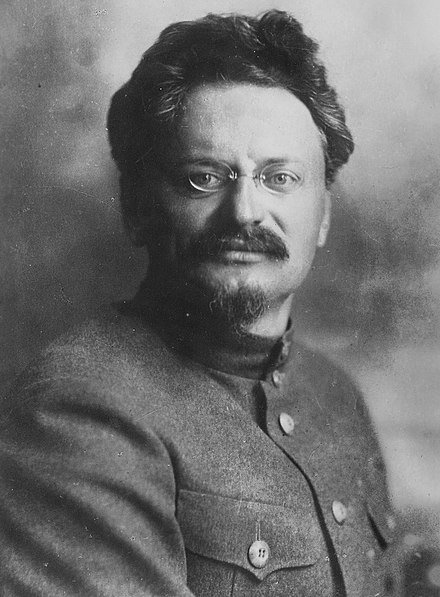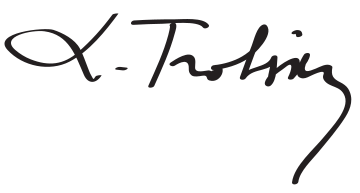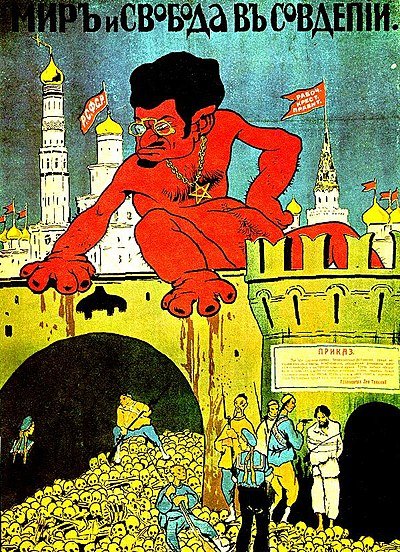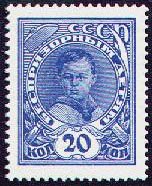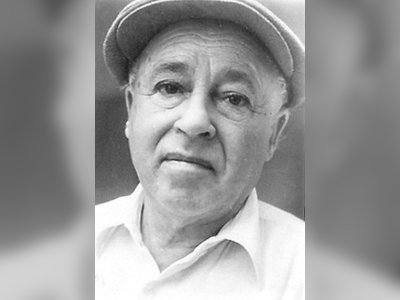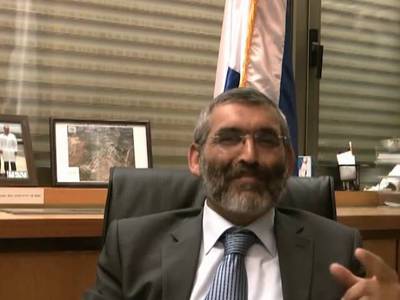מורשת גדולי האומה
בזכותם קיים
beta
Leon Trotsky: A Documentary Biography
Leon (Lev) Davidovich Trotsky (Russian: Лев Давидович Троцкий) was a prominent Soviet leader, revolutionary, and communist thinker of Jewish-Russian descent. He played a pivotal role in founding the Red Army, but his relationship with Joseph Stalin led to his eventual exile and tragic assassination.
Early Life:
Born on October 26, 1879, in the village of Yanovka (now in Ukraine), Leon Trotsky was the fifth of eight children in a Jewish farming family. His parents, David and Anna Bronstein, were devout Jews. Four of his siblings died young. Trotsky spent his early years in Bobrinets, where his father owned several shops, and later moved to Odessa, where he received his education. He initially attended a Christian school and later transferred to Nikolayev Gymnasium, where he was exposed to Marxist ideas.Early Activism:
While studying mathematics at Odessa University, Trotsky abandoned his studies to engage in revolutionary activities against the Tsarist regime. He was first arrested in 1898 for his involvement in the South Russian Workers' Union and sentenced to two years in prison. In 1900, during his incarceration, he married his first wife, Alexandra Sokolovskaya. Despite both being Marxists, their marriage followed traditional Jewish customs and was officiated by a rabbi.In the same year, he was sentenced to four years of exile in Siberia, where he lived with his wife and where their two daughters, Zinaida (or Zina) and Nina, were born. In 1902, he separated from his first wife without formally divorcing her. He escaped from Siberia, adopted the surname "Trotsky" (inspired by the Odessa prison), and the first name "Leon" in honor of his maternal grandfather. He then traveled to London, where he joined Vladimir Lenin, the editor of the Russian Social-Democratic newspaper "Iskra" (The Spark).
Rift with Lenin and the Bolshevik-Menshevik Split:
Trotsky's involvement in the Second Congress of the Russian Social Democratic Labor Party in London in 1903 marked the beginning of a rift between him and Lenin. Trotsky supported the Menshevik faction against Lenin's Bolsheviks during the congress. Although his support for the Mensheviks was short-lived, it strained his relationship with Lenin for the next 14 years.Life from the 1905 Revolution to the 1917 Revolution:
During the 1905 Revolution, Trotsky returned to Russia and was elected chairman of the Petrograd Soviet. His active involvement in organizing armed resistance led to his eventual expulsion from Russia. In January 1907, he escaped to Sviyazhsk, where he lived with his wife. In 1917, Trotsky joined the Bolsheviks and quickly rose to become the chairman of the Petrograd Soviet. He played a crucial role in planning and executing the October Revolution.Post-Revolution and Civil War:
After the Bolsheviks seized power, Trotsky was appointed People's Commissar for Foreign Affairs, primarily tasked with negotiating peace with Germany and ending Russia's involvement in World War I. However, his resignation in February 1918 led to the signing of the harsh Treaty of Brest-Litovsk, which resulted in territorial losses for Russia. Trotsky then assumed the role of People's Commissar for Military and Naval Affairs and played a leading role in organizing the Red Army during the Russian Civil War. He personally directed military campaigns from a specially equipped train that traveled incessantly between different war fronts.Rivalry with Stalin and Exile:
Following Lenin's death in 1924, a power struggle ensued within the Communist Party. Trotsky, despite being a highly skilled orator and writer, did not actively challenge Stalin's rise to power. Instead, he delivered a conciliatory speech at the Thirteenth Party Congress in May 1924 and did not demand the publication of Lenin's testament, which called for Stalin's removal. This missed opportunity allowed Stalin to consolidate power within the party. Trotsky and his supporters formed the Left Opposition, which clashed ideologically with Stalin's approach to socialism. Trotsky advocated for a rapid industrialization, international revolution, and "permanent revolution," while Stalin favored a more gradual, nationalistic approach.Exile and Assassination:
In 1929, Trotsky was expelled from the Communist Party and eventually deported from the Soviet Union. He spent his first years of exile on Büyükada Island in Turkey. In 1933, he received political asylum from Edouard Daladier's government in France and lived initially in Rouen and later in Barbizon. However, he was not allowed to visit Paris. In 1935, feeling increasingly unwelcome in France, Trotsky moved to Norway, where he stayed with Konrad Knudsen near Oslo. After two years, likely due to pressure from the Soviet Union, he was arrested and placed under house arrest.In 1939, a group of armed men attempted to assassinate Trotsky in his Norwegian home, but he escaped unharmed. However, in 1940, the Mexican government granted him asylum, and he lived in Coyoacán, Mexico City. On August 21, 1940, Leon Trotsky was assassinated by one of Stalin's agents, marking the end of a tumultuous and influential life in the realm of international communism. His ideas and legacy continue to be debated and discussed to this day.
- לאון טרוצקיhe.wikipedia.org
